March 28, 2023
France
When the people of France are this opposed to a reform and this supportive of protests but the government does not relent, is it still a democratic country?
The only place that Macron can look to for support is the "investor" community from which he emerged. Those investors are concerned that France might not be a good place to invest if there are strikes all the time. But, they are not that concerned yet. Most private investors are predicting that the (capitalist side of the) economy can survive protests so long as they end soon.
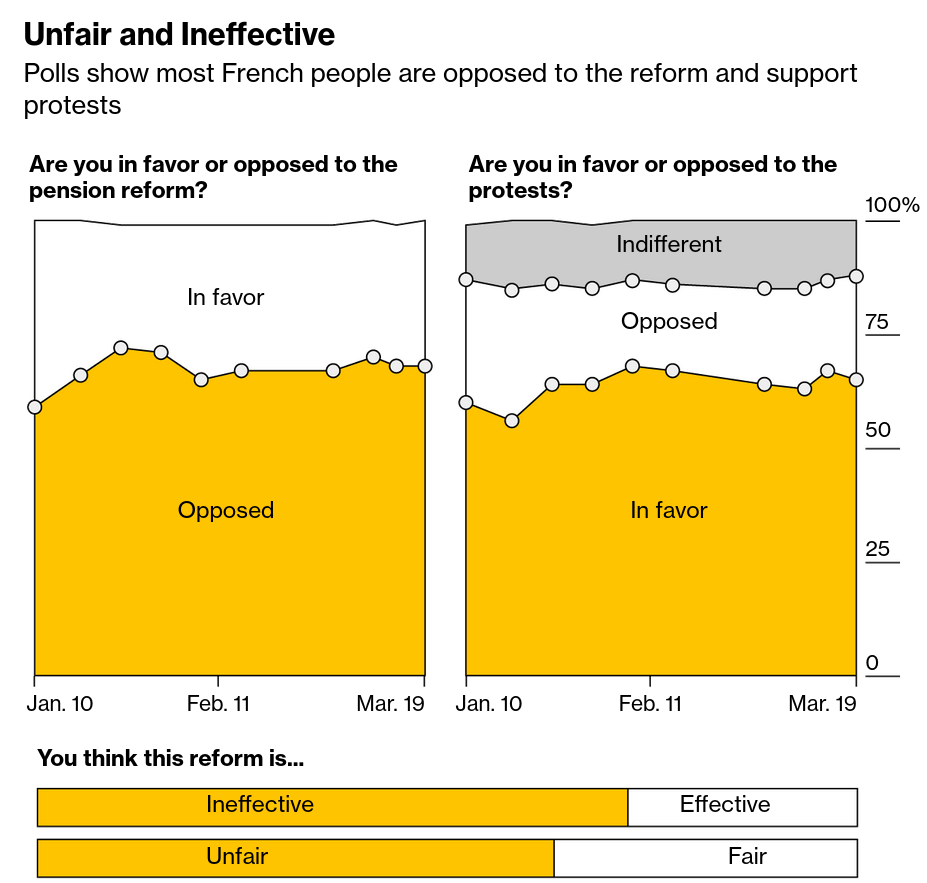
Disruption expected during Tuesday strikes:
- Rail operator SNCF warns of severe disruption and urges travelers to cancel or delay their journeys
- Île-de-France Mobilités, which oversees public transportation in the Paris region, says as few as one-third of services will be running on some subway lines, while around half of commuter trains will be canceled
- France’s DGAC civil aviation authority has asked airlines to reduce flights at Paris-Orly, Marseille-Provence, Toulouse and Bordeaux airports by 20% on Tuesday and Wednesday; passengers should expect delays and disruption
- A strike by garbage collectors is in its fourth week, with more than 7,000 tons of trash still piled up in the streets of Paris
- Electricite de France SA increased the length of outages at some of its nuclear reactors
- France’s oil-processing industry is running at a fraction of normal capacity, with four of the nation’s six refineries barely operating
- Almost 16% of gas stations lacked at least one type of fuel as of Monday, according to Agence France-Presse (BN)
The images of fires in the streets and people drinking wine at the cafe on that street fit well into what we think of France. I think that the politicians who are simply watching the economic numbers are missing the point.
The culture of defiance in France can quickly turn ugly—as we have seen in other parts of the world. The left is ahead today, but staying there and stopping the slide to the far right will take continued militant action.
UK inflation
Outside of the EU, the UK seems to be facing some very serious price pressures.
- Food price growth is at 17.5% last month and probably 15% again this month.
- Fresh fruit is in short supply.
- Price of sugar (which is in everything around Easter) is at a record level.
- The £ is at an all time low, meaning importing goods is even more expensive on top of price increases.
- Energy is still expensive.
The government is pretending that inflation will fall to below 4% by the end of the year. Even if headline inflation does fall to that level wage growth has not followed these price increases.
India heat
It is going to be another summer of intense heat waves for India. And, they have already started.
It has been the hottest February since 1901 and the weather service is already issued a heat advisory for the coming weeks.
India is about to become the world's most populous country at 1.4B people. Which is great for "economic growth", but not so great when that economic growth did not go to building public infrastructure and raising standards of living.
Many city dwellers do not have access to air-conditioning or even good ventilation. So, any above 30-35°C temperatures means that people die.
Last year heat waves destroyed crops and drove drinking water levels very low.
On the economic side, business economists will talk about how a growing population is good for growth. However, if the workers cannot work and labour productivity collapses, then all those new workers do not mean much for profits.
Solutions are hard to find. You cannot just supply more cooling services as they need power. Power is not so easy to just spin-up without state supported investment.
Power generation is also what is causing the current heat waves, so the current "solution" is hardly going to be a good thing in the long run.
India is over 50% fossil fuel for generation. Most of it coal.
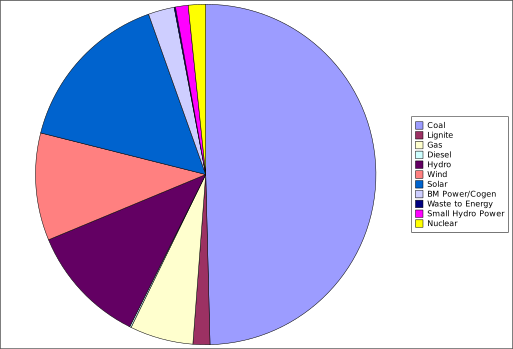
AI and productivity
Goldman Sachs economists have issued a report trying to predict the impacts of AI on productivity.
They say that, globally, Artificial Intelligence systems have the capacity to add 7% to global GDP output.
Generative AI (like ChatGPT) could increase labour productivity by 1.5% alone.
The report is interested in this because labour productivity is what drives corporate profits in many areas. This is especially important when you consider that labour productivity has slowed considerably over the previous decade. In the last ten years, Western labour productivity growth was about 1.3%.
Labour productivity comes from capital investment replacing workers with machines and supporting increased speeds of worker production through automation and work-augmenting technology.
That investment has not been happening as firms are more interested in maximizing profits in the financial system.
However, workers have not benefited from the lack of investment in productivity growth either. Weakness of the labour movement in fighting capital has meant profits have remained high in spite of low productivity growth.
The caution is that AI will negatively impact workers as it is introduced by stupid and arrogant managers and capital captivated by the mythology of AI.
Unions must update their technological change language. In a perfect world unions would also be focused on organizing workers who are about to be impacted by these changes. Consciousness raising about the way productivity gains affect the working class is necessary if we are to stop capital usurping all the gains from AI in profits.
Socialists need to be able to clearly articulate the alternative vision of the implementation of AI systems (and technological change more broadly). This means understanding the concept of Organic Composition of Capital and understanding what this technology is and how it works.
For example, one area that could help workers is the automation of administrative tasks—currently being downloaded on all of us to report our own productivity to management. However, the implementation of this automated reporting could also harm workers if this comes with the current mix of surveillance technologies. Which, under the current kind of tech-bro capitalism, it definitely will.
Goldman estimates that seven in 10 US workers would see their jobs impacted by AI, but only a small share of those would see their positions replaced by new technologies. Sectors most at risk from replacement include office and administrative support and legal.
“The direct effects of generative AI on labor demand could be negative in the near-term,” economists wrote. But “the effects on labor productivity growth would still be positive,” they said. (BN)
Most of the gains in the economy come from the introduction of new jobs that replace less productive work. This assumes no "just" transition.
We are talking about 300 million jobs being directly affected across major economies.
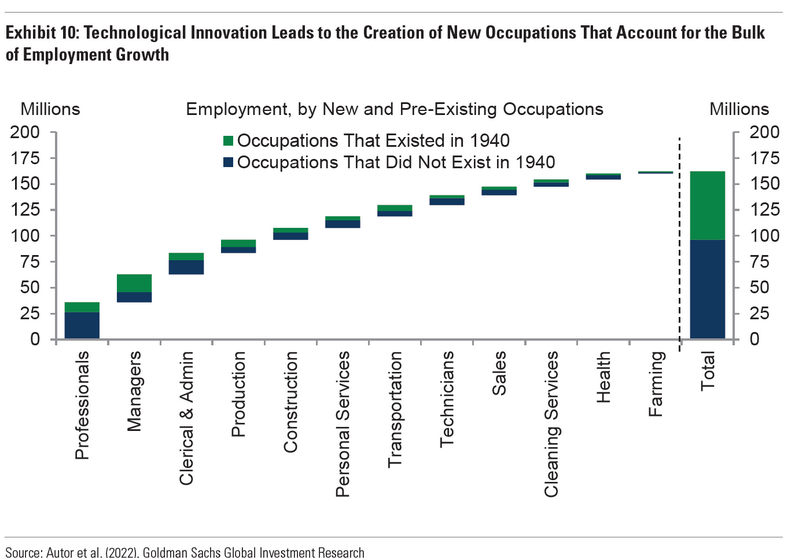
Sweden no longer a good example
Income inequality has been creeping-up in Sweden and it is likely a bad example of Social Democratic reform benefiting folks. Mostly because the Social Democrats and the rest of Swedish society adopted neoliberalism.
Income inequality has skyrocketed and actual inequality in wealth has grown even faster.
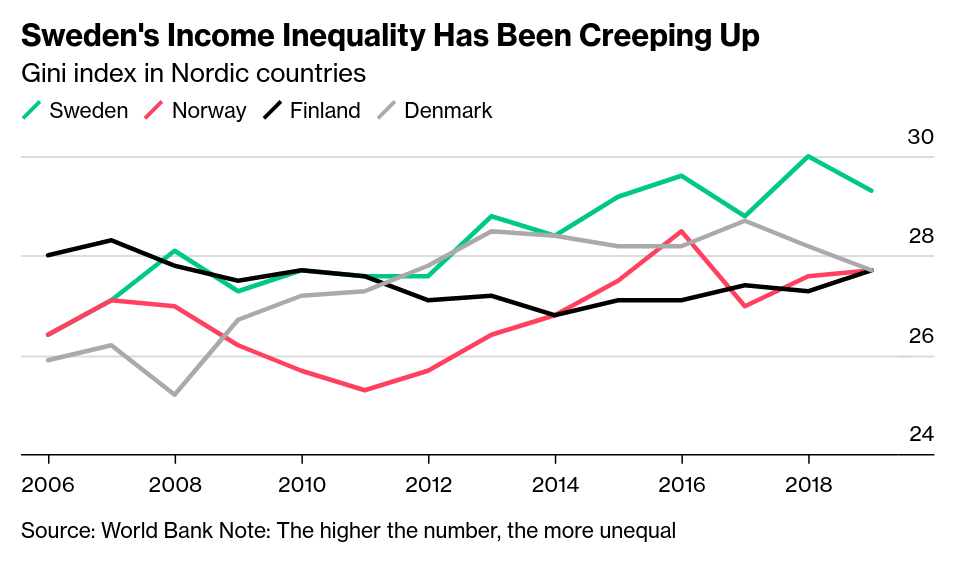
The main driver of this inequality is the collapse of government supports for working people. Most evident is the slow-down in the creation of enough housing.
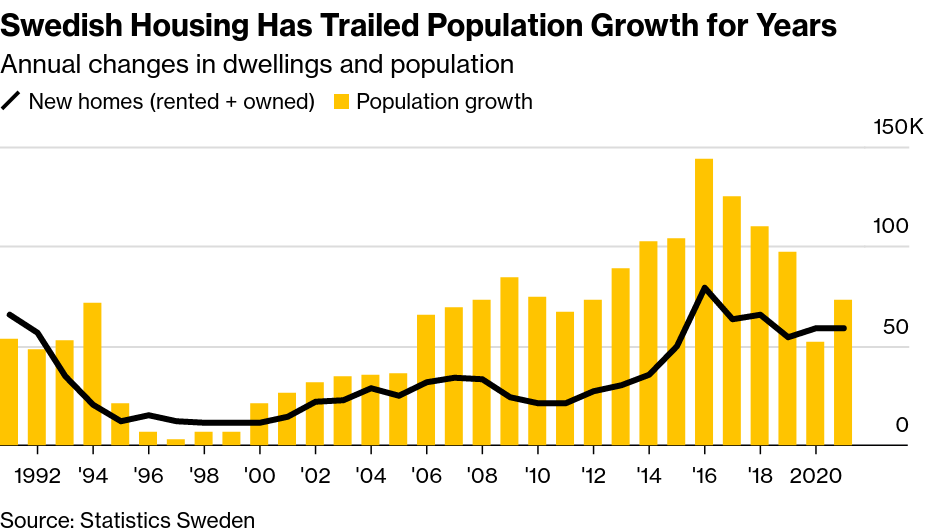
The squeeze has been great for those who own property, but have severely limited the wealth generation of workers. As property increases in value because of short supply, the economic system becomes a giant conveyor belt moving wealth from working people to land speculating capital.
Wealth transfer is what you are seeing in those graphs.
No one likes Banks
The regulators are starting the pile-on for banks.
All the dirty secrets that have been known but have not been published are coming out all at once.
We will keep an eye on where this is all going over the next month.
The goal is to discover the answer to the question of where did all that wealth go? We know, of course. But, it is nice to be proved correct.